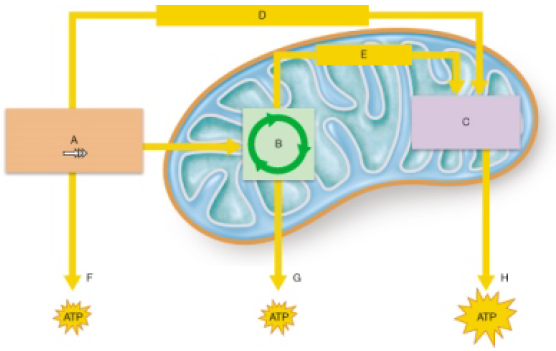Nucleic acids are polymers made up of which of the following monomers?
A) nucleotides
B) sugars
C) amino acids
D) nitrogenous bases
A
You might also like to view...
The term "virus" is derived from the Latin word that means:
A. cancer. B. disease. C. poison. D. death. E. infectious.
What is the estimated frequency of allele A in the gene pool?
A) 0.25 B) 0.50 C) 0.75 D) 0.125
Chloramphenicol is an antibiotic that targets prokaryotic (70S) ribosomes, but not eukaryotic (80S) ribosomes. Which of these questions stems from this observation, plus an understanding of eukaryotic origins?
A) Can chloramphenicol also be used to control human diseases that are caused by archaeans? B) Can chloramphenicol pass through the capsules possessed by many cyanobacteria? C) If chloramphenicol inhibits prokaryotic ribosomes, should it not also inhibit mitochondrial ribosomes? D) Why aren't prokaryotic ribosomes identical to eukaryotic ribosomes?
Which letter(s) indicate(s) the process during which oxygen is consumed?

a. A
b. B
c. C
d. D and E